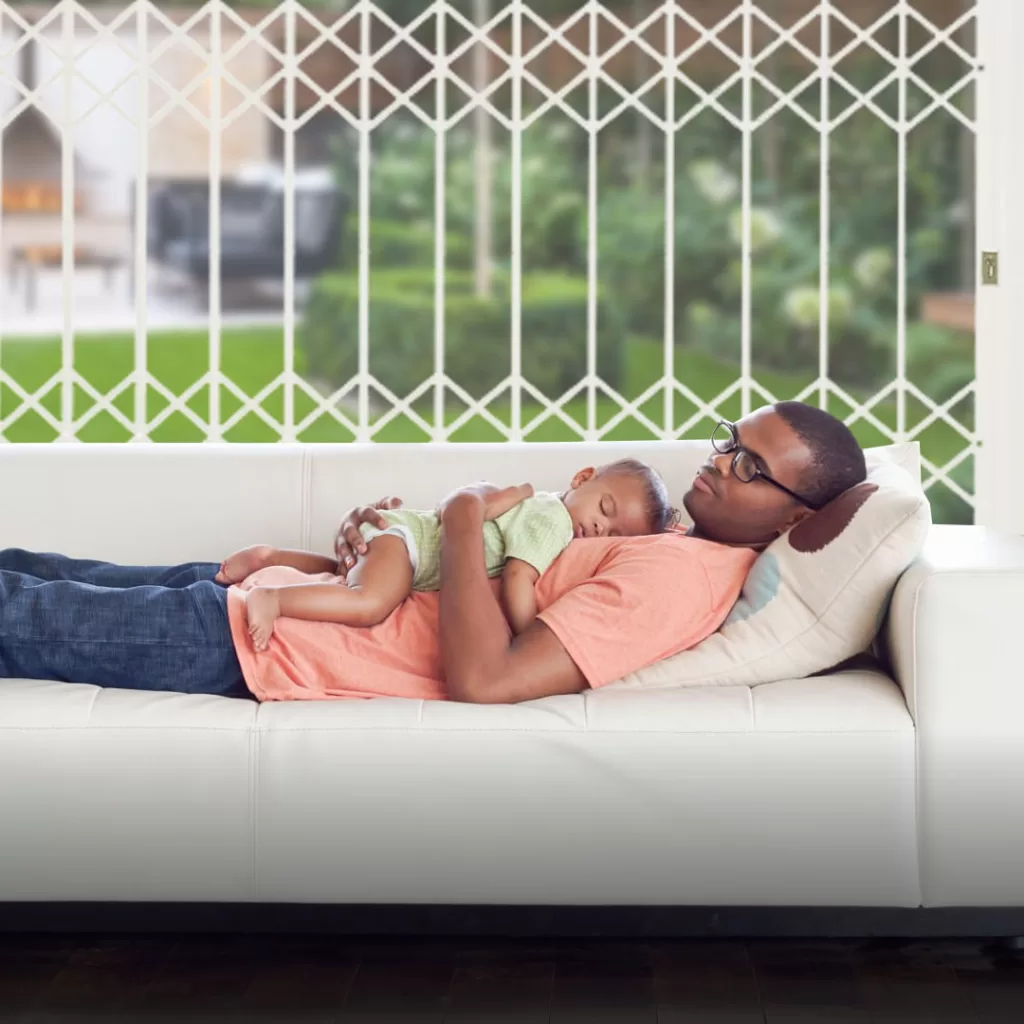There are so many positives to living in South Africa. But like anywhere in the world, it also comes with its unique challenges, one of which is dealing with the pervasive fear of crime. It’s no secret that the country faces high crime rates, especially when it comes to burglaries and home robberies. According to the most recent statistics from the South African Police Service, residential crimes continue to be a concern, leaving many households feeling vulnerable. While the emotional toll of this is significant, taking steps to protect your home can be a crucial part of overcoming fear and restoring peace of mind.

The emotional cost of crime
Fear and anxiety stemming from the threat of crime can have a profound psychological effect. Whether you’ve been a direct victim or are simply concerned about becoming one, the anxiety of not feeling safe at home can weigh heavily on your mental health. Arielle Susman, a Clinical Social Worker specialising in trauma and mental health, explains, “One of the most damaging aspects of a home invasion is the feeling of violation and loss of control. When a sense of safety is threatened or compromised, it can trigger intense fear, anxiety. Installing security barriers gives the victim a tangible way to regain control over their environment, while it won’t stop a crime, it can help them feel more protected and secure. This can reduce the hypervigilance and anxiety that often accompany trauma, particularly for individuals who are dealing with symptoms of post-traumatic stress disorder (PTSD).”

Reclaiming a sense of safety
Installing visible security measures, such as gates and barriers, is a noticeable way of regaining a sense of control in the aftermath of a crime or to try help prevent a crime from happening in the first place. These physical deterrents play a crucial role in helping individuals feel safe in their own homes, according to Damian Judge, Sales and Marketing Executive at Trellidor. “The presence of security barriers can act as a powerful psychological buffer, giving homeowners peace of mind by knowing they’ve taken steps to protect their property and loved ones and while we can’t stop a crime, those extra few minutes can often help in saving a life.”
In fact, the mere visibility of security barriers can often be enough to deter opportunistic criminals. “Knowing that a home is protected by physical barriers can reduce the likelihood of an attack and, in turn, lower the anxiety levels of the homeowners, especially in areas with higher crime rates,” adds Judge
Locking out the worry
While these measures certainly play a functional role, their impact on emotional wellbeing is not to be underestimated. For those who live alone or feel particularly vulnerable—single parents, elderly individuals, or families with young children—physical security measures provide a daily sense of reassurance. “Even for those who haven’t been victims of crime, the installation of security gates or burglar bars brings a sense of safety that’s hard to replicate in other ways,” says Susman. “This feeling of control over one’s environment can help alleviate the constant worry that many feel, particularly in cases where secondary trauma occurs, which is when people hear about others’ home invasions and begin to feel vulnerable,” she adds.
Beyond security
When it comes to securing your home, it’s important to find a security partner you can trust. “Choosing the right security solution can feel overwhelming. Opting for well-established, tried-and-tested products can go along way in ensuring long-term protection and peace of mind,” says Judge.
Choosing quality security solutions is not only about physical strength but also about durability and the ability to deter potential criminals. “It’s important to invest in security measures that have been proven to work and are built to last. Bargain products may seem appealing initially, but they often fall short when it matters most,” adds Judge.
Another key factor to consider is getting a professional, comprehensive security assessment of your home. Judge advises working with qualified experts who can evaluate the unique vulnerabilities of your property. “A one-size-fits-all approach doesn’t work when it comes to security. Having a thorough assessment ensures that your security solutions are tailored to your specific needs, whether you live in an apartment, a large family home, or a secluded property,” he explains.
Recovering from a break-in
The psychological benefits of security upgrades can be even more critical for victims of crime as Susman explains, “Taking steps to enhance their physical environment can empower victims by allowing them to actively participate in their recovery. It sends a message to the individual that they are taking proactive steps to protect themselves, regain stability and no longer feel vulnerable and helpless. However, it’s important to recognise that while physical barriers may alleviate some immediate concerns, they do not address the psychological and emotional impacts of trauma. Trauma-informed therapy or counselling is often necessary to fully address feelings of fear, violation, and powerlessness.”
A secure home and a peaceful mind
For South Africans, investing in home security is a step towards preventing crime and regaining the freedom to live with less worry. “That freedom is something no one should be without,” says Judge.





























